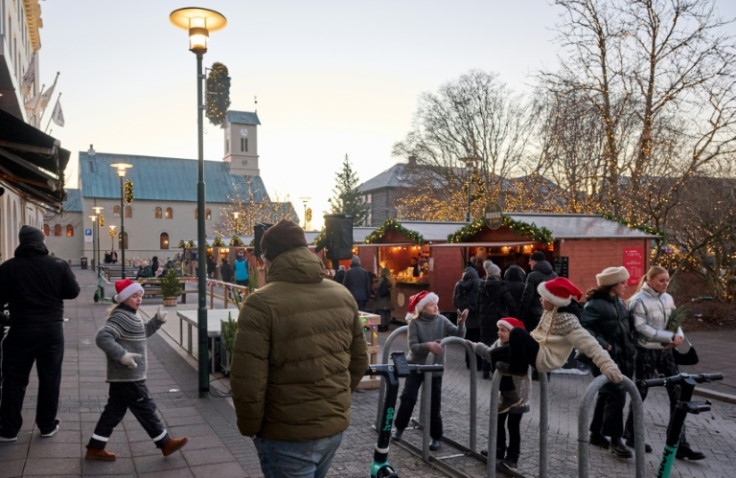Social Democrats Set To Overtake Ruling Party In Iceland Snap Election

Iceland's opposition Social Democrats were ahead in vote counting on Sunday after a snap election prompted by the collapse of the fraught coalition government.
With the ballots of more than half of eligible voters counted, the Social Democratic Alliance led by Kristrun Frostadottir were ahead of the main governing Independence Party, scoring 21.1 percent of the vote, according to broadcaster RUV.
If the results hold, the party would more than double the support it saw in the last election in 2021, when it obtained 9.9 percent.
"I'm extremely proud of all the work that we've done. We obviously see that people want to see changes in the political landscape," Frostadottir told AFP as results started coming in late on Saturday.
Prime Minister Bjarni Benediktsson's Independence Party was trailing the Social Democrats with 19.3 percent, down from the 24.4 percent it won in 2021.
In third place was the Liberal Reform Party with 15.8 percent.
The Left-Green Movement was on track to lose all its parliamentary seats. By Sunday, it had garnered only 2.4 percent of the vote, falling below the five percent cutoff to enter parliament.
Benediktsson's three-party, left-right coalition resigned in October, almost a year before the deadline to hold parliamentary elections.
The three-way coalition -- the Independence Party, the Left-Green Movement and the centre-right Progressive Party -- collapsed over the treatment of immigrants and asylum seekers.
But in a country battling inflation and high interest rates where some 268,000 people are eligible to vote, the economy, housing and healthcare have been foremost on voters' minds.
Despite causing the demise of the government, immigration was not a galvanising issue among voters in a country where one in five residents is foreign-born.
"It is very prominent in the public debate amongst politicians. But still it does not seem to be an issue that people are putting at the front of their list of important issues," Eirikur Bergmann, a politics professor at Bifrost University, told AFP in English.
According to a Gallup poll published in early November, only 32 percent of respondents listed immigration as a key issue and only 18 percent included asylum issues.
By contrast, healthcare, economic issues and housing were top concerns for more than 60 percent.
Few Icelandic parties have left power unscathed since the 2008 financial crisis -- which hit Iceland's over-indebted banks.
"In the last 15 years, voters in Iceland have been extremely critical of their governments and voted against the government in all elections except one," Olafur Hardarson, professor of political science at the University of Iceland, told AFP.
The exception was Katrin Jakobsdottir of the Left-Green Movement, who retained her post as prime minister in the last election.
Benediktsson took over as premier in April 2024 after Jakobsdottir resigned to run for the presidency, which she failed to win.
In Iceland, there isn't a "culture" of minority governments, Bergmann explained, meaning that parties will try to form a majority government via a coalition.
According to Hardarson, one likely coalition would be the Social Democratic Alliance and the Liberal Reform Party -- along with one or two others -- as their policies are relatively close.
But he noted: "This is difficult to predict because in Iceland the coalition game is relatively open."

© Copyright AFP 2024. All rights reserved.



















